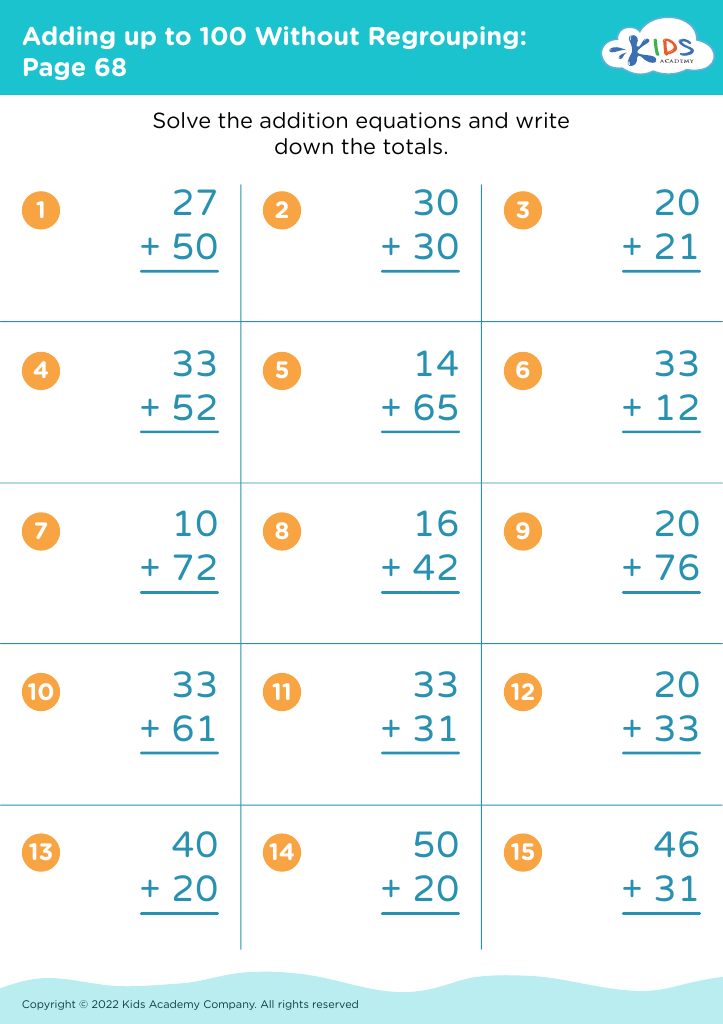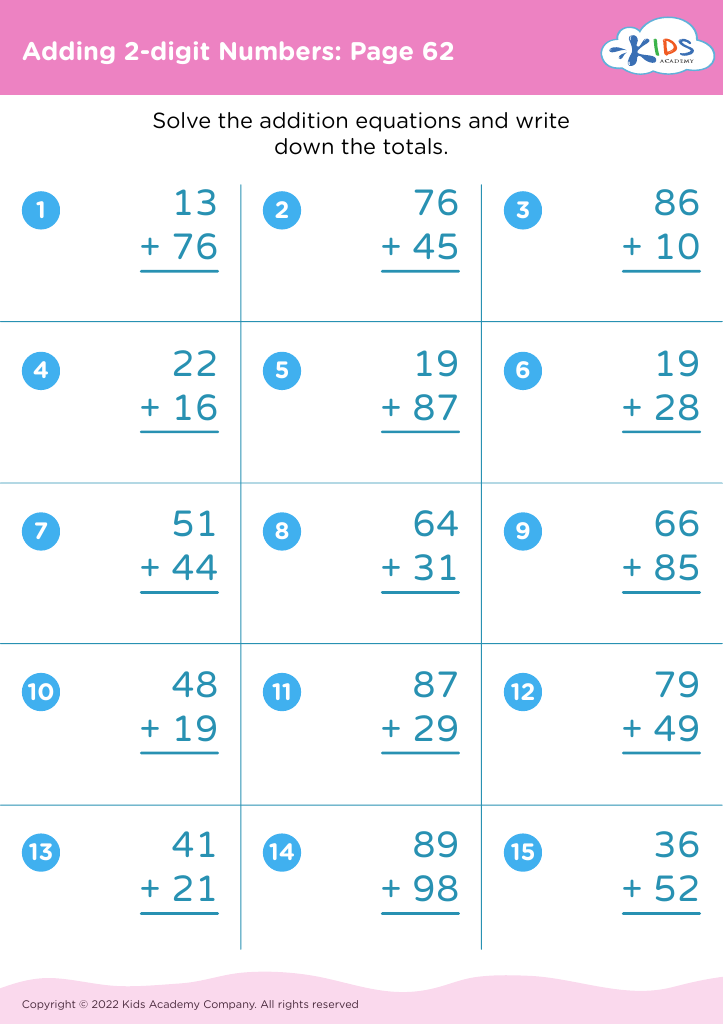Learning number patterns Addition & Subtraction Worksheets for Ages 5-7
3 filtered results
-
From - To
Welcome to our engaging collection of Learning Number Patterns Addition & Subtraction Worksheets designed for children aged 5-7! These worksheets provide an interactive and fun way for young learners to explore addition and subtraction through number patterns. With a variety of activities, your child will develop critical math skills, enhancing their ability to recognize and create patterns while mastering basic arithmetic. Our thoughtfully designed resources encourage independent learning and boost confidence, making math enjoyable. Ideal for home practice or classroom use, these worksheets will help your child build a strong foundation in math. Get started today and watch them thrive!
Learning number patterns in addition and subtraction is crucial for children aged 5-7, as it lays the foundation for mathematical understanding and problem-solving skills. Parents and teachers should care about this concept because it enhances children’s number sense, helping them recognize relationships between numbers. Identifying patterns makes it easier for students to perform calculations and develop strategies, ultimately boosting their confidence in tackling mathematical problems.
Furthermore, understanding number patterns is key to mastering basic arithmetic operations. When children learn to see the patterns involved in addition and subtraction, they become adept at making mental math calculations, which fosters a more intuitive grasp of numbers. This skill is particularly important as it prepares young learners for higher-level math concepts they'll encounter in later grades, including multiplication and division.
Additionally, recognizing patterns supports cognitive development and analytical thinking. It encourages children to observe, predict, and draw conclusions. This not only benefits their academic performance but also cultivates an innate curiosity about how numbers work, which is fundamental in a world increasingly reliant on quantitative skills. By prioritizing the teaching of number patterns in addition and subtraction, parents and teachers are paving the way for a lifelong appreciation of mathematics.



















